Olympic Games Triathlon: What changes if races at Paris 2024 end up as the dreaded duathlon?
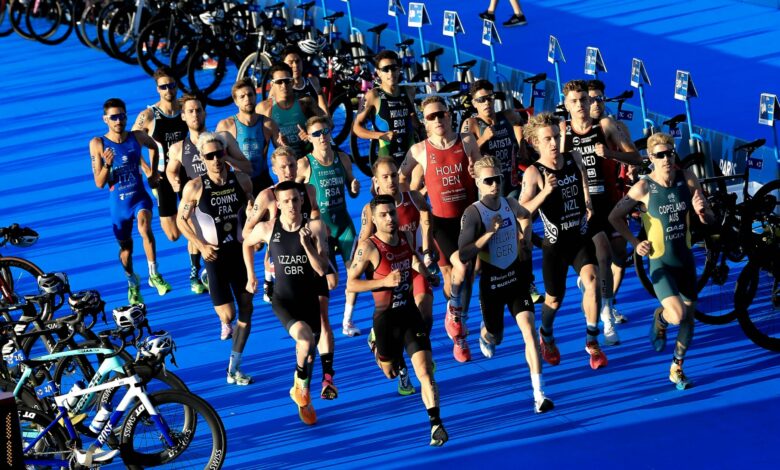
The Olympic Games triathlon teams have been selected for Paris. We know which athletes will be racing. That’s the certainty.
But what we don’t know for certain is whether the triathlon will be a triathlon, or if it will be morphed into a (run-bike-run) duathlon. And that significant unknown hinges on one simple thing: the water quality in the River Seine on the days of the races.
World Triathlon World Triathlon keeps assuring us that everything will go ahead as planned, and that the Seine will be swimmable. Unfortunately, that positivity goes counter to pretty much every article which has appeared in mainstream media recently.
Tests carried out by local authorities in the last month show that as yet the water quality is not of a sufficient standard to allow swims to go ahead. Organisers are now pinning their hopes on improved weather in the coming weeks saving the day.
If indeed the races are turned into duathlons, that brings up a very interesting question: what will the effects be?
Although a duathlon has two of the three sports in a triathlon, it is a very different event to pace and to race.
A Duathlon will more heavily favour strong runners
Clearly, when you swap out a swim for an additional 5k of running, which is what would happen if the triathlon is turned into a duathlon in Paris, that adds more value to those who run fast.
Why? First, it affords a strong runner the ability to use that first 5k to potentially gap others whose strength is more the bike. And even if the stronger runners don’t open up some daylight between themselves and others who can push the bike, they will still be fresher at the start of the bike.
Who does this help? For the men it clearly puts people like Morgan Pearson, Alex Yee and Hayden Wilde up front. All three have proven running prowess and will likely gain from having two runs.
Belgium’s Jelle Geens will be another confident he will be right there entering T1 as well, while Switzerland’s Max Studer (9th at the Olympic Games), recently ran 13:23 on the track for 5000m, so should be in prime position as the lead group mount their bikes.
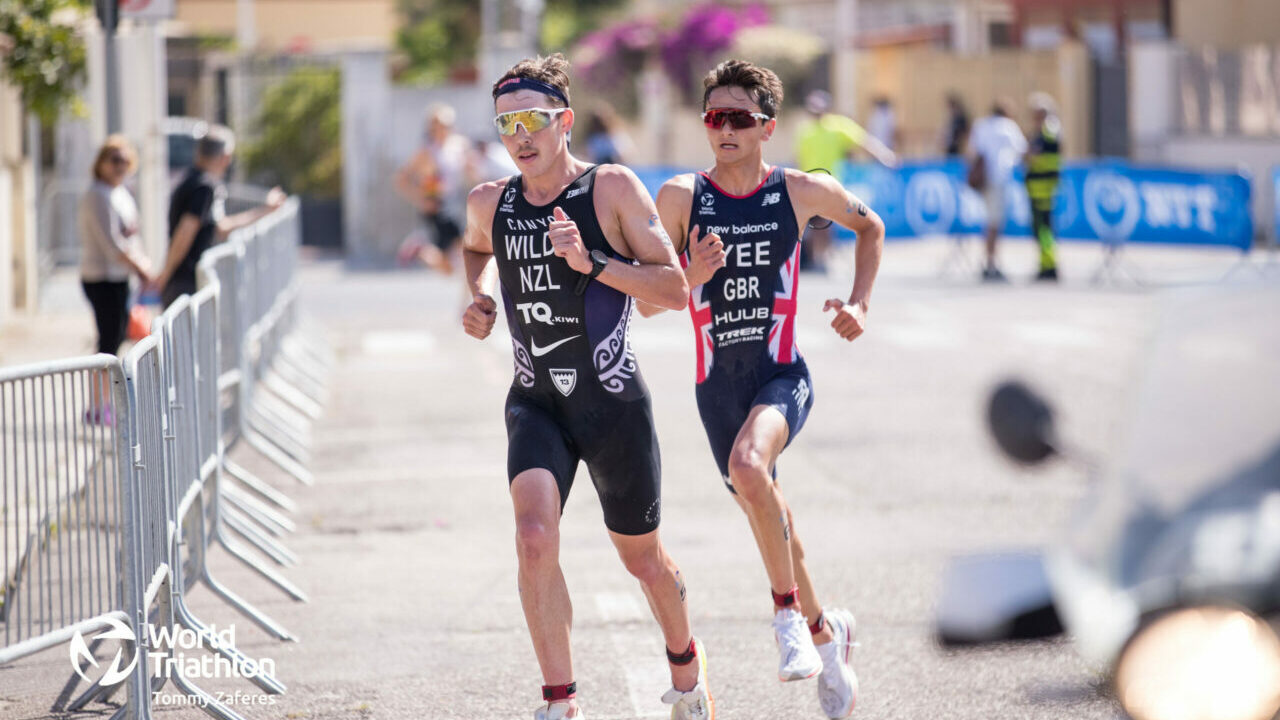
For the women, you have to think Beth Potter, Cassandre Beaugrand, Lisa Tertsch and Léonie Périault would be in a strong position, were the swim to be replaced with another run. But they would all benefit equally? Probably not.
Potter and Beaugrand for example have been consistently towards the front of WTCS swims over the past couple of years and will arrive in Paris confident in their swimming abilities, but Périault has been a little less consistent.
Who does it hurt? Those who normally would use the bike to strengthen their chances of being on the podium will have a bigger job cut out for them. Taylor Knibb and defending champion Flora Duffy head that list. They can both do damage on two wheels, but may have that advantage neutralised depending on how much that first run takes out of their legs. And I will tell you now, that first 5k run, should it happen, will be blisteringly fast.

The French men’s team – Dorian Coninx, Pierre Le Corre and Leo Bergere – will absolutely not want to see a cancelled swim. As they have proven over the last two seasons, the French have all-round strengths which has seen them achieve great success at the WTCS Championship Finals in Abu Dhabi and Pontevedra by attacking from the first second of the race.
None of that trio will fear an additional run, but they will be frustrated if one of their trump cards, the swim, is abruptly removed.
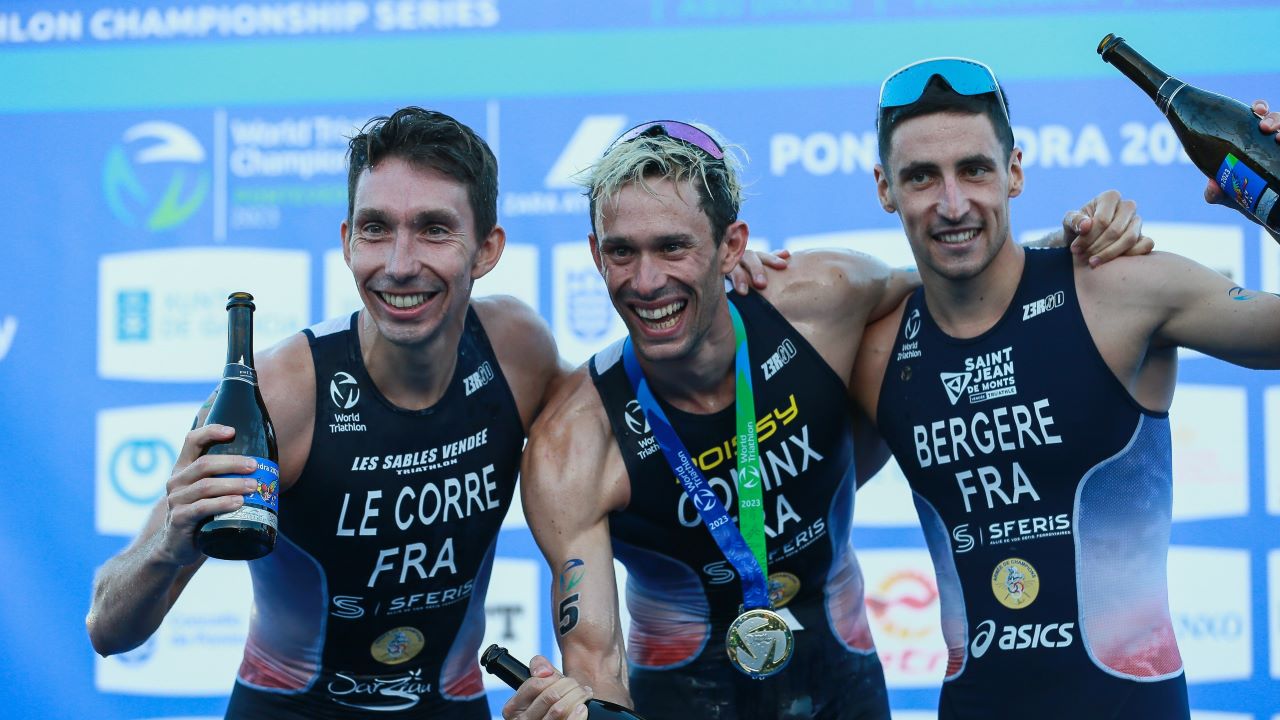
ELEVATING ENDURANCE WITH PREMIUM GEAR & SERVICES
A Duathlon would completely change team tactics
A lot has been said about the discretionary picks for some of the teams. A number of athletes chosen by their federations clearly seem to have been included because of their ability to swim and cycle with the best, but whose runs are not good enough to put them in as real threats for the individual podium. Their job would be to try to help position their country’s top choice at or near the front when the athletes come into transition for the run.
An example of that would be Great Britain’s Sam Dickinson, who is an excellent choice to help Yee be in the right spot to unleash his weapon of choice…the run. Seth Rider is that same athlete for the US. He could potentially cover any moves on the bike which would jeopardise Pearson’s chances of a medal-winning performance.
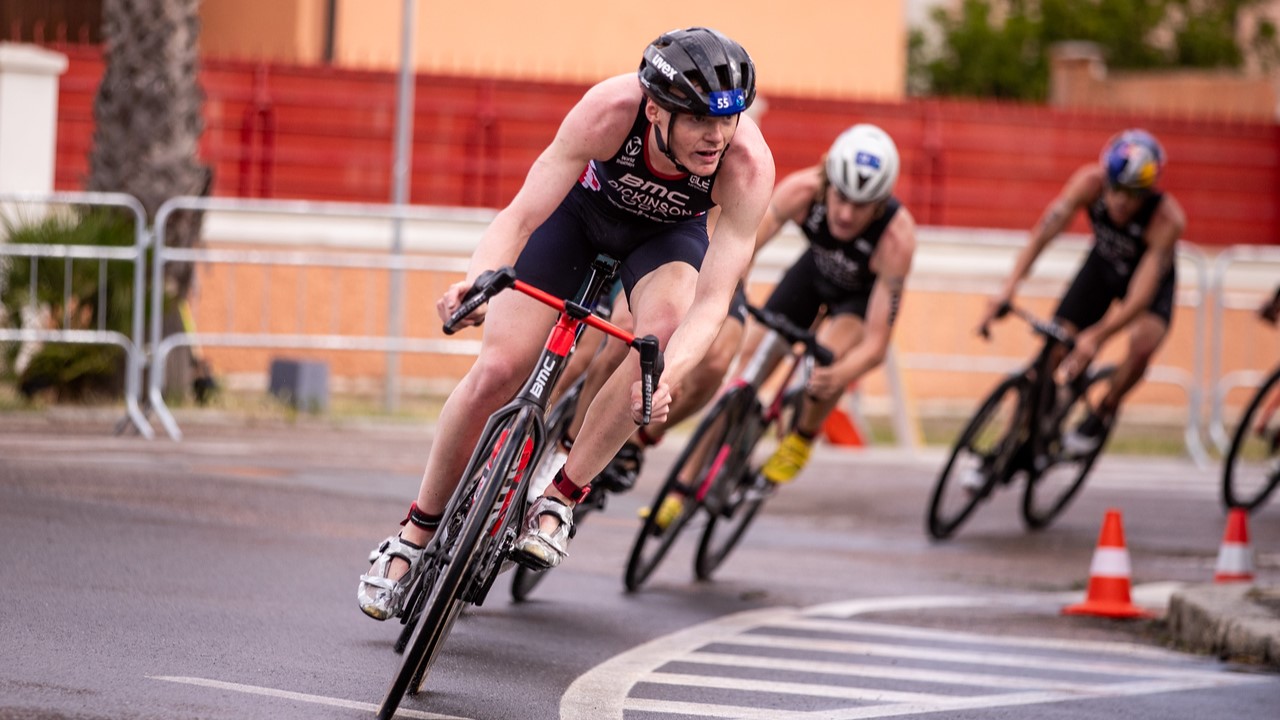
In Cagliari, Seth had swim and bike splits which were right near the top of the fastest of the day. But his run was about three minutes slower than the best. Neither Dickinson nor Rider are runners of podium quality for the Paris Olympic individual race.
So, if the race becomes a duathlon, the question immediately gets asked if they will be able to keep up enough on the first 5k without completely blowing up, to then be able to help their team-mates position on the bike. I say not.
And that leads us neatly into another, perhaps overlooked issue.
Don’t forget the Mixed Team Relay
Nobody truly wants it to be a duathlon – even the weaker swimmers / stronger runners, who may actually benefit from a format change. That’s not what many, many years of preparation has been for.
But we need to remember this – for a significant proportion of the field, there are TWO triathlon races happening in Paris, with the Mixed Team Relay happening on August 5, five days after the Women’s individual on July 31, with the Men racing a day earlier on July 30.
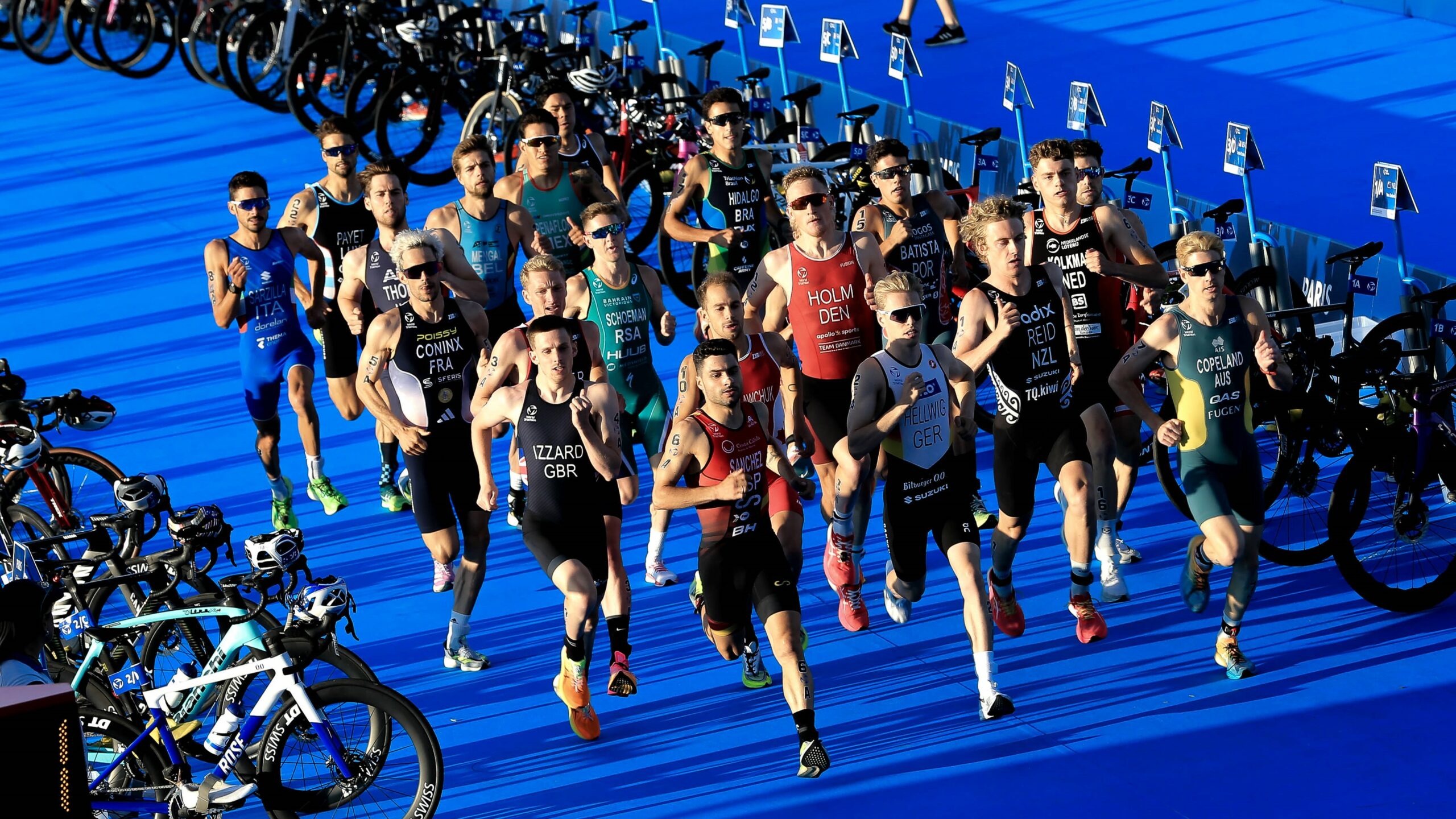
Referring back to Great Britain’s Dickinson as a prime example – his primary focus for Paris 2024 is to deliver in that Mixed Team Relay. His chances of a medal in the individual race are likely zero, but his skillset – combined with his specific training and the likely team-mates he will be racing with – make an Olympic Games podium at least an even money bet in my eyes. While returning from Paris with an Olympic gold medal is a challenging target, it’s still a very realistic ambition.
An Olympic medal, especially a gold one, could quite literally change your life.
Would a duathlon change his approach to the individual race? As he showed magnificently in Cagliari, he has the skills to be the perfect domestique for Yee. In a triathlon.
On the surface, that potential is significantly reduced if we start with a 5km run rather than a 1.5km swim… so how might Dickinson, and others with similar positions, approach that race? What position will British Triathlon take, having put their faith in him to deliver the best possible leg with the British Mixed Team Relay?
In a race which starts with a 5km run, Yee’s position in the lead group at T1 is all but guaranteed. If that logic follows, then Yee’s potential benefit from a team-mate working for him is reduced and perhaps even negated.
For Dickinson, even an exceptional first discipline under a duathlon format might not be enough to put him close enough to make that first group on the bike. At the same time, the physical toll of an all-out 5k run is massively greater than a 1.5k swim, due to the impacts on the legs.
Just days later, Sam will have what is likely to be the only chance in his life to become an Olympic champion. I’m pretty certain I know where my focus would be in that scenario. He surely won’t be the only athlete in a similar position.
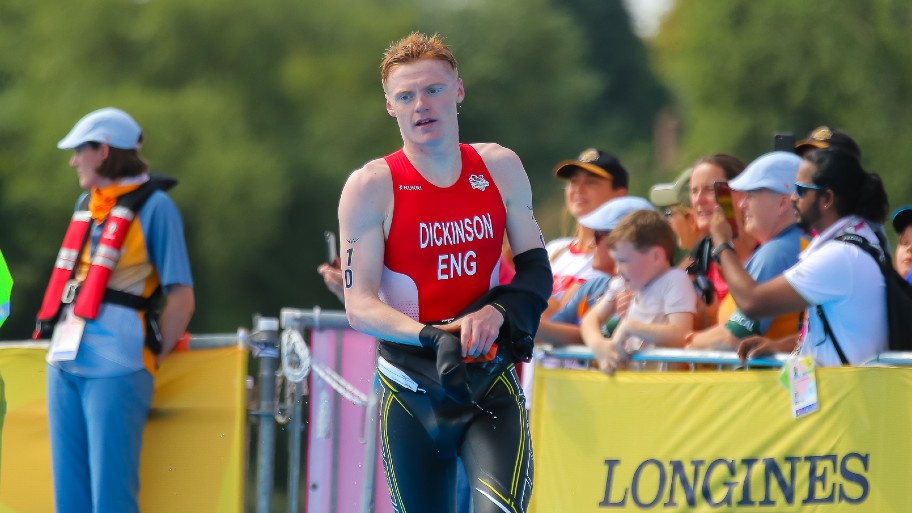
In summary then, and referencing back to my column from last week, no swimming in the Olympic Games triathlon would absolutely leave the sport as the biggest loser. Its best athletes would also be the collateral damage in a complex bet on water quality that didn’t pay out.
But while that’s still a possibility, athletes and federations will have plenty of work ahead on strategies and logistics for both the Individual and Mixed Team Relay events.


